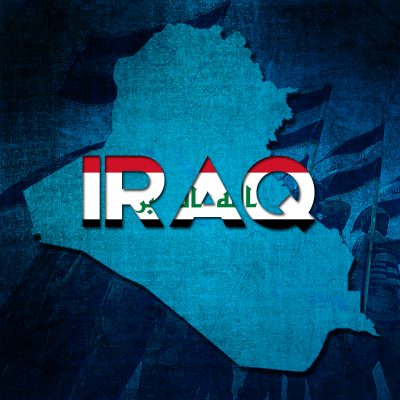
Iraq’s new Prime Minister Haider al-Abadi (September 2014)
In 2014, Haider Al-Abadi formed the current Iraqi Council of Ministers following former Prime Minister Nouri Al-Maliki’s resignation under the Saudi-American pressure and the rise of ISIS in Iraq and Syria.
Abbadi is a member of the Islamic Da’wa Party which led by Nouri al-Maliki. Established in 1957, the Islamic Da’wa Party is considered one of the first opposition Shiite parties in Iraq. It continued its activities in Iraq secretly during Saddam’s era.
In 1981, it established a military camp in the Iranian territory to use as a foothold against Saddam’s regime. The Islamic Da’wa Party is now considered one of Iraq’s most powerful parties. Its members are predominantly Shiite due to its ideological structure and ancient ties to Iran.
Maliki possessed extensive relations with Iran during his reign. Nevertheless, Iraq’s relation with Iran did not change much under Abbadi’s reign. Iraq still maintains close ties to Iran especially. Abbadi unofficially supports Iran’s efforts and allows the presence of Iraqi forces backed by Iran inside Syria. Notably, Abbadi has worked hard to decrease tensions with Saudi Arabia and rebuild ties with the country after its decay under Maliki.
In 2014, Abadi chose Mohamad Salem Al-Ghban as the minister of interior in his government. Some sources describe Al-Ghban as a mostly independent figure.
Al-Ghban is of the Shia faith. In 2011, he started studying in the Tehran University to get a PhD in political science. This indicates his special relations with Iran. In 2006, Al-Ghban was appointed as the head of the security and defense committee in the Iraqi parliament.
During the last 3 years, Al-Ghaban worked closely with the US collation in Iraq. At the same time, he cooperated with the Baghdad operation room established in 2015. The operation room includes Russia, Iran, Syria and Iraq.
Mosul’ son Khalid Mit’ab Yasseen Al-Obeidi worked in the position of Minister of Defense in Abbadi’s government from 2014 to 2016. Of Sunni faith and affiliated with Osama Al-Nujaifi’s coalition, Obeidi possesses excellent ties with the United States though the Iraqi Parliament removed him from power in 2016 for alleged corruption.
Orfan Al-Hayyali, also Sunni, replaced him as the minister of defense. Hayyali was an officer in the Iraqi Army during Saddam’s era and is described as a very professional figure that does not interfere in Iraqi politics. He also maintains excellent relations with the US Coalition as well as a direct communication with the Baghdad Operations Room, which coordinates offensives and aerial operations between the Syrian and Iraqi governments.
Adel Abdel Mehdi became the minister of oil in 2014. Affiliated with the Iman Party and a leader of the Higher Islamic Iraqi Council, Abdel Mehdi does not meddle with Iraqi politics as he works strongly with both Iran and Saudi Arabia at the same time in OPEC’s perimeter to organize oil distribution and production in the region.
Hoshyar Zeebari is the minister of finance. Zeebari is a member of the Kurdistan Democratic Party (KDP), which is headed by President of Iraqi Kurdistan Masoud Barzani. Zeebari is a US apologist and an adamant loyalist to his party.
Like the KDP, he’s one of Iran’s biggest foes in Iraq. He attacked Iran in 2013 when he was Iraq’s Minister of Foreign Affairs condemning of Iran’s use of Iraqi airspace to transport weapons to Syria. Zeebari’s statements were criticized by other members of Maliki’s government, and even Maliki himself declared that Zeebari’s statements did not reflect the government stance towards Iran and Syria.
In 2014, Ibrahim Al-Ja’afari became the minister of foreign affairs in Abbadi’s government. A Shiite and a member of the National Unity Coalition which he heads, Ja’afari possesses special relations with Iran and has asserted his opposition to foreign meddling in Syria affairs on several occasions.
On May 27, 2017, Ja’afari stated that Iraq opposes hostile policies against Iran confirming that Iraq will never be in the fronts opposing Iran because it opposes “the politics of polar arcs in the region.” He added that Iran, until now, did not attack or occupy an inch of Iraqi territory in comparison with Turkey. Turkish forces had entered 110 km deep inside the Iraqi territory despite Baghdad’s direct warnings. However, Ja’afari also attempts to maintain solid relations to Saudi Arabia.
With the departure of Maliki’s government in 2014, the Iraqi-Saudi relations improved at least partly. It is believed that the United States contributed to this. However, the majority of the Iraqi government remains supportive of Iran. Despite this, no Iraqi faction has shown an intention of interfering in the Saudi-Iranian conflict. Iraq needs the US support and seeks keeping close ties with Iran.





This article is pure colonial bullshit. Any real iraqi will keep fighting the invaders forever.
https://mobile.twitter.com/EjmAlrai/status/879738355252113408
Over 100,000….Maybe 140,000 PMU which include Muqtada al-Sadr – South Iraq has lots more to put in.
PMU has huge support in Iraq,……good luck with that Uncle Shlomo : )